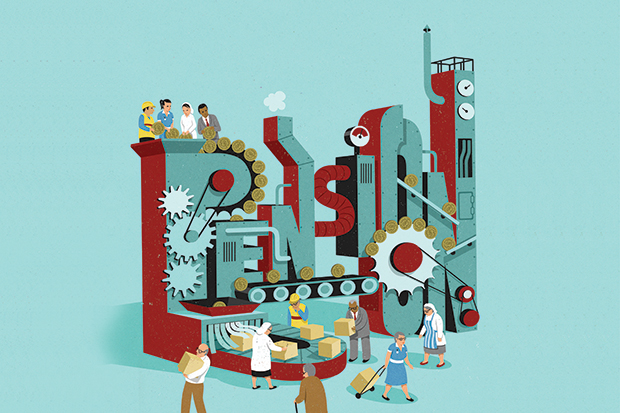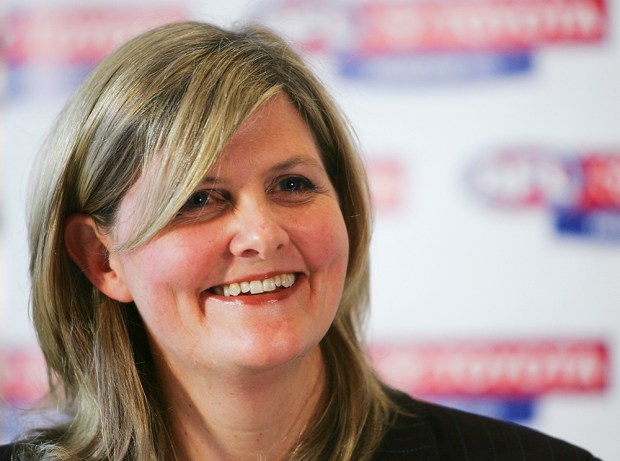‘Financial policy chiefs clash over best way to fund retirement’, said a recent FT headline. Andrew Bailey, head of the Financial Conduct Authority, had just issued a warning against ‘people holding more housing in their stock of pension assets’ — in a direct contradiction of his close colleague Andy Haldane, the Bank of England’s chief economist, who three weeks earlier had said that the best investment for retirement ‘ought to be pension but it’s almost certainly property’. So who’s right? And if even the most senior experts disagree, how can the young begin to make sensible financial plans for their old age?
Let’s assume you’re in your thirties. You’re married or have a long-term partner; one of you is taking a career break to bring up your young children. You’ve both been working since you left school or college, but every penny you’ve ever saved, or received from your parents, has gone into the -purchase of your first flat — on which the mortgage payments are a hefty burden even in an era of low interest rates.
You’re enrolled in a workplace pension scheme but you don’t expect to be in the same workplace for long, and you can see possibilities ahead that might make you self-employed or the owner of your own business. You have no expectation of pension entitlements that will deliver ‘defined benefits’. Nor do you have a fixed retirement date in mind — but you can imagine a time, perhaps in your fifties but certainly in your sixties, when you will want to devote more time to leisure and less to earning a crust. What on earth do you do now to prepare for that future?
One answer is simply to go with the flow. Trust and hope that the equity in your flat will grow and will help you in due course to trade up to a bigger family home, with more future equity in it; that your pension entitle-ments, such as they are, will accrue into a worthwhile sum by the time you eventually draw on them; and that ultimately, when you’re old and frail, the state will provide. After all, the world is changing so fast that to impose austerity on yourself now in order to put money aside for four decades hence is worse than pointless. And in any case, if you do try to save, either you earn near-zero interest or you have to put your faith in -complex financial products and slippery financial advisers. So why bother?
Well, maybe. It would certainly help, as Sir Martin Jacomb argues on page eight, if interest rates were to start rising again. And Andy Haldane must be right that home ownership is nowadays the foundation of financial security in retirement: whatever happens to house prices, there will always be an option of ‘trading down’ to release equity; and indeed most older people actually prefer smaller homes.
Whether owning a second property as a buy-to-let investment — or several of them — makes sense for pension investment is a different question. Though usually sound in terms of long-term capital appreciation, rental properties have to be looked after and often generate lower net yields than buyers expect. So you wouldn’t want all your eggs in that basket, and Andrew Bailey is right to warn against ‘over-weighting’ of any one asset class in your pension portfolio.
But nor is it wise to leave that portfolio to develop in entirely accidental or passive ways. The price of all the freedoms of modern life, including the freedom to work and live in whichever way we choose, is that we have to take command of our financial circumstances and -manage them as best we can, without relying on paternalist employers and as far as possible without having to fall back on an over-burdened, underfunded welfare state.
So an active portfolio approach is the key. Those who enjoy market-watching and stock-picking are probably well suited to a self-invested personal pension or Sipp — and will find a range of ideas in this issue from Matthew Lynn, Elliot Wilson and Ross Clark. Those with a more general interest, but less confidence in their ability to pick winners or less time to devote to doing so, may prefer to let a professional manager build a portfolio for them. In which case, be careful who you pick and careful what they pick for you — but don’t expect them consistently to outperform markets, because as Tim Price observes on page 22, very few do.
Beyond that, let us try to formulate some broader rules for distant happy retirement. First, take all the tax advantages available, in annual Isa allowances and other investment reliefs — because they are a real incentive to save at a time when non-tax-advantaged returns look so low.
Second, never overload yourself with debt on top of the mortgage that enables you to be a homeowner. Don’t borrow for lifestyle reasons — to buy a yacht, say — unless you are certain of your ability to pay back. Unpayable personal debt can damage personal circumstances and destabilise -families. Just don’t go there.
Next, when you can, be a bit brave. At the stage in later working life when you have some disposable cash savings, think positively about allocating a modest slice to investing in new ventures, perhaps in the digital or bioscience spheres, or in fast or slow food, or in the advanced energy solutions Robin Andrews writes about on page 16. Be open-minded, but highly selective, about new mechanisms such as crowdfunding that can put your spare cash to work.
And with the top slice of your cash, buy things you like and keep them. On page 31, Jonathan Ray writes about how to start building a wine cellar — and drinking it slowly, keeping some stock in reserve. On page 28, David Oldroyd-Bolt introduces us to the esoteric world of rare-manuscript collecting. In both cases, well-chosen items will rise in value over the decades, and selling will always be a possibility if cash has to be realised.
Finally, invest in the next generation. Ensure your children have the best schooling you can afford or the state can provide. Encourage them towards worthwhile -higher education — but not, as Louise Cooper argues on page 34, towards useless degrees that leave them with poor prospects and big debts. Help them buy homes and start businesses, not least because if they achieve success they will be better placed to help look after you in your last years.
We have no idea what the future will look like, other than the fact that we will all grow old. So retirement planning will never be a precise science — but that doesn’t mean we shouldn’t think about it, even as a distant prospect. As in many aspects of life, it’s all about adaptability to changing circumstances, underpinned by strong but simple rules.
The post Simple rules for happy retirement appeared first on The Spectator.
Got something to add? Join the discussion and comment below.
Get 10 issues for just $10
Subscribe to The Spectator Australia today for the next 10 magazine issues, plus full online access, for just $10.















Comments
Don't miss out
Join the conversation with other Spectator Australia readers. Subscribe to leave a comment.
SUBSCRIBEAlready a subscriber? Log in